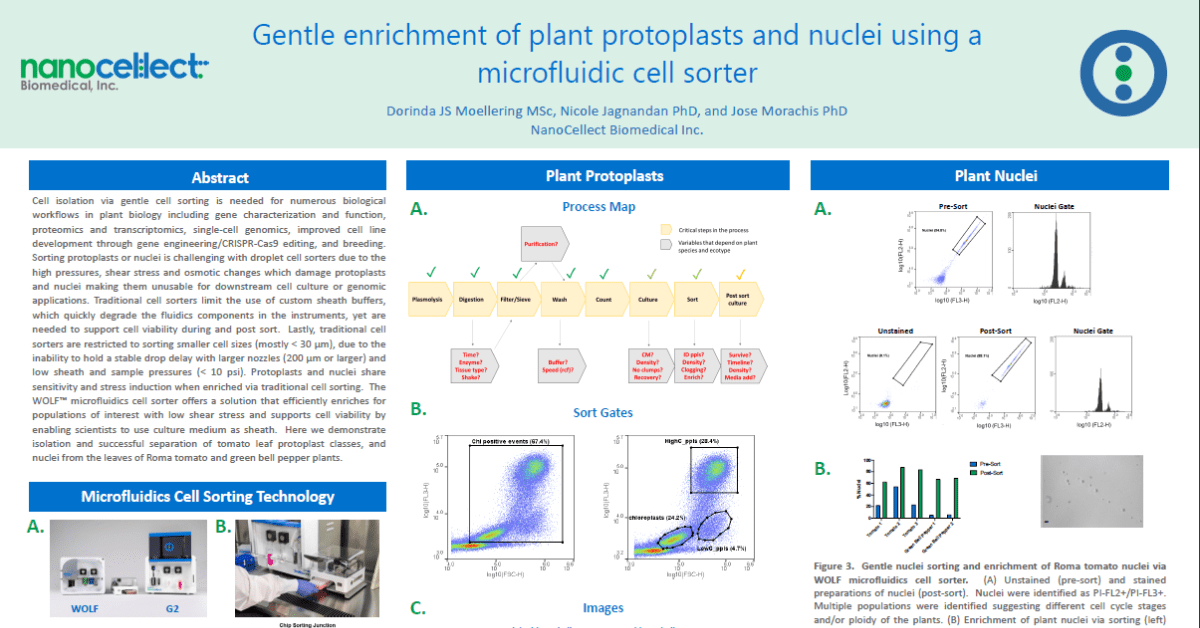Gentle enrichment of plant protoplasts and nuclei using a microfluidic cell sorter

Abstract
Cell isolation via gentle cell sorting is needed for numerous biological workflows in plant biology including gene characterization and function, proteomics and transcriptomics, single-cell genomics, improved cell line development through gene engineering/CRISPR-Cas9 editing, and breeding. Sorting protoplasts or nuclei is challenging with droplet cell sorters due to the
high pressures, shear stress and osmotic changes which damage protoplasts and nuclei making them unusable for downstream cell culture or genomic applications. Traditional cell sorters limit the use of custom sheath buffers, which quickly degrade the fluidics components in the instruments, yet are needed to support cell viability during and post sort. Lastly, traditional cell sorters are restricted to sorting smaller cell sizes (mostly < 30 μm), due to the inability to hold a stable drop delay with larger nozzles (200 μm or larger) and low sheath and sample pressures (< 10 psi). Protoplasts and nuclei share sensitivity and stress induction when enriched via traditional cell sorting. The WOLF™ microfluidics cell sorter offers a solution that efficiently enriches for populations of interest with low shear stress and supports cell viability by enabling scientists to use culture medium as sheath. Here we demonstrate isolation and successful separation of tomato leaf protoplast classes, and nuclei from the leaves of Roma tomato and green bell pepper plants.
TCN – 006
Download PDF